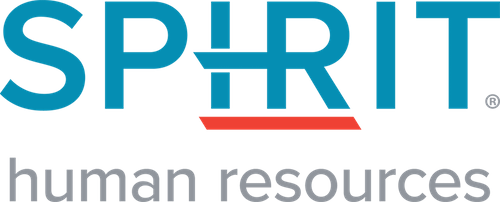8 Ways to Make Onboarding More Successful

With the right steps, you can create a world-class onboarding experience that grows and retains team members for years to come.
Preboarding
The preboarding process acts as a bridge between an employee accepting an offer and starting work. Preboarding can take many forms, many of which can help make the first-day experience smooth and productive.
1. New Employee Data
Gathering employee data beforehand helps ensure new employees don’t spend time on their first day filling out forms. Many employers use electronic onboarding to gather employee data. This allows hirees to easily complete new hire forms online at their convenience, even before their first day. If electronic means are unavailable, determine what information can be collected and prefilled ahead of time. For new workers, starting the first day on the job with little to no paperwork will help create a positive experience and allow for quicker integration.
2. Communicate Often
While communication should be regular from the first interview, timely contact with new hires before and throughout the onboarding process is even more critical. New employees should know what to expect on their first day before they enter the door.
If new hires are required to be on-site, send them an email with important information such as where to park, how to get in the building and where to go when they arrive.
Onboarding
Outside of the hiring process, onboarding is your organization’s opportunity to make a strong first impression with a new employee. It’s not an overstatement to say that the way a business approaches onboarding will affect how employees see the company, its values and its culture. Although it seems daunting, onboarding can be made manageable by following a few simple steps. Onboarding is an ongoing process and should not be confused with orientation.
3. Demonstrate Company Values
From the onset, new hires should understand your organization’s core values. The first step is preparing and presenting these values along with the company’s overall mission statement.
The next is ensuring that company leadership adheres to those core values within reasonable expectations — you have to talk the talk and walk the walk! Reinforced and reliable company culture is paramount, particularly for new team members.
4. Provide Measurable Goals
Create a clear set of goals for employees to follow so they know what to expect with future tasks. Keeping these objectives simple in the early stages of onboarding will help employees become comfortable with internal processes without feeling like they’re being thrown into the deep end.
Employees should also be familiarized with any primary company-wide objectives. It’s important to have an end goal in mind so that your team can see how their work is being applied to the bigger picture.
5. Establish Dynamic Work Duos
It’s easy to feel alone when starting a new job. New hires will benefit greatly from having a specific person to look to with questions. This person can act as a mentor, demonstrating how a team’s processes work and making sure new hires are ready to dive in as soon as they can. It can be intimidating for new employees to introduce themselves to teammates, and making that connection for them can provide a greater sense of comfort.
6. Provide Opportunities for Team Members to Meet
While a buddy system can help new employees transition into their roles, entire teams have to be connected to succeed. Schedule one-on-one or group meetings for employees to introduce themselves to others that are joining the organization. These meetings will not only create a connection between team members, but also help new employees understand each person’s role and how they fit into the bigger picture.
Second Day and Beyond
Onboarding is a process that extends far past the first day. This period of time varies across each company. Although employees can sometimes be technically up and running within a week, it’s important to continue with an extended onboarding process for a month, three months or even a year.
7. Collaborate Early
Have new employees collaborate with their fellow team members early on so they can garner feedback in real time. Start out small by having them sit in on team meetings or assist teammates on current tasks. This will help them become comfortable with the type of work being done, the processes involved and requesting assistance when needed.
8. Frequently Check In and Ask for Feedback
Feedback goes both ways in any work environment. While a new hire is likely to ask for frequent evaluation of their work, it’s just as important for managers to set those employees up for success with attention to their personal strengths and challenges. Further, be open to feedback about the onboarding process.
Get Started With an Experienced HR Provider
Onboarding takes time and effort to perfect. It begins with gathering new employee data. Our intuitive platform saves time and improves accuracy. Streamline your new hire workflow with our all-in-one HRIS software so you can get straight to nurturing meaningful connections and top-performing personnel.
Is Your HR Working for You?
Latest Blogs from Spirit HR
Your Quick Guide to E-Verify
The federal E-Verify program has been around in some form since 1996, and it’s only getting bigger. With Florida joining the program earlier this year, around half of all states now require E-Verify participation in some way. Enrolling in the program isn’t difficult,...
3 Reasons to Outsource Your HR
Navigating the complexities of HR management can be a daunting task for businesses, especially when streamlining operations and optimizing costs are crucial for success. Outsourcing your HR functions can be a game-changer, providing the breathing room you need as a...
3 Steps to Improve Health and Safety Compliance in Your Workplace
Health and safety are two terms that can seem tedious concerning the workplace, but ignoring them and the standards they entail could result in injury, illness or even death. Prevention and preparation are integral to a safe, happy and compliant organization. Here are...
